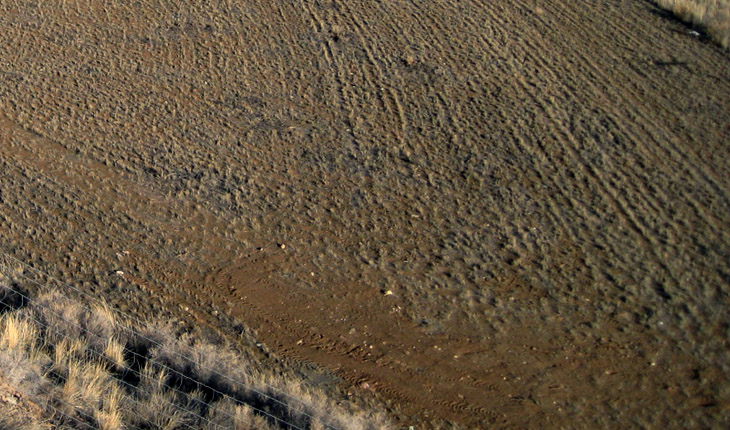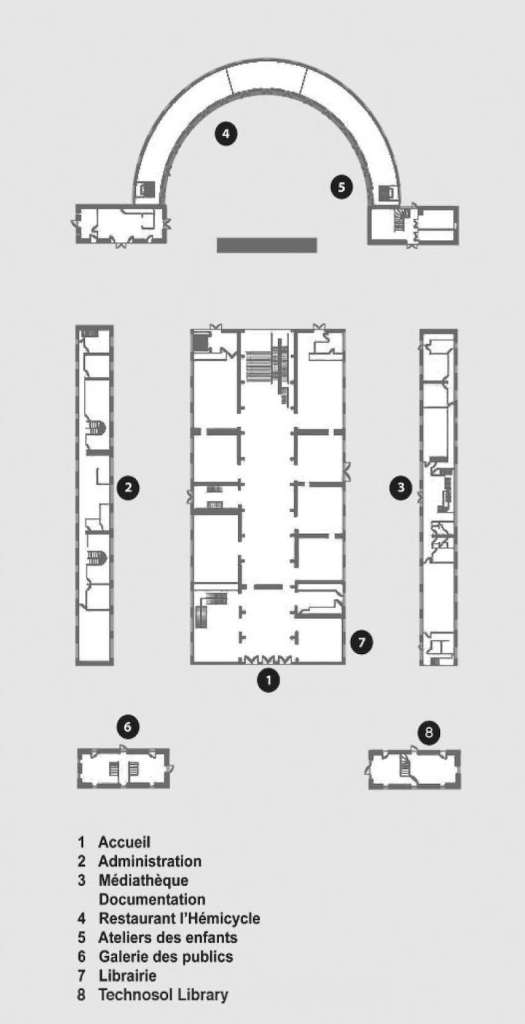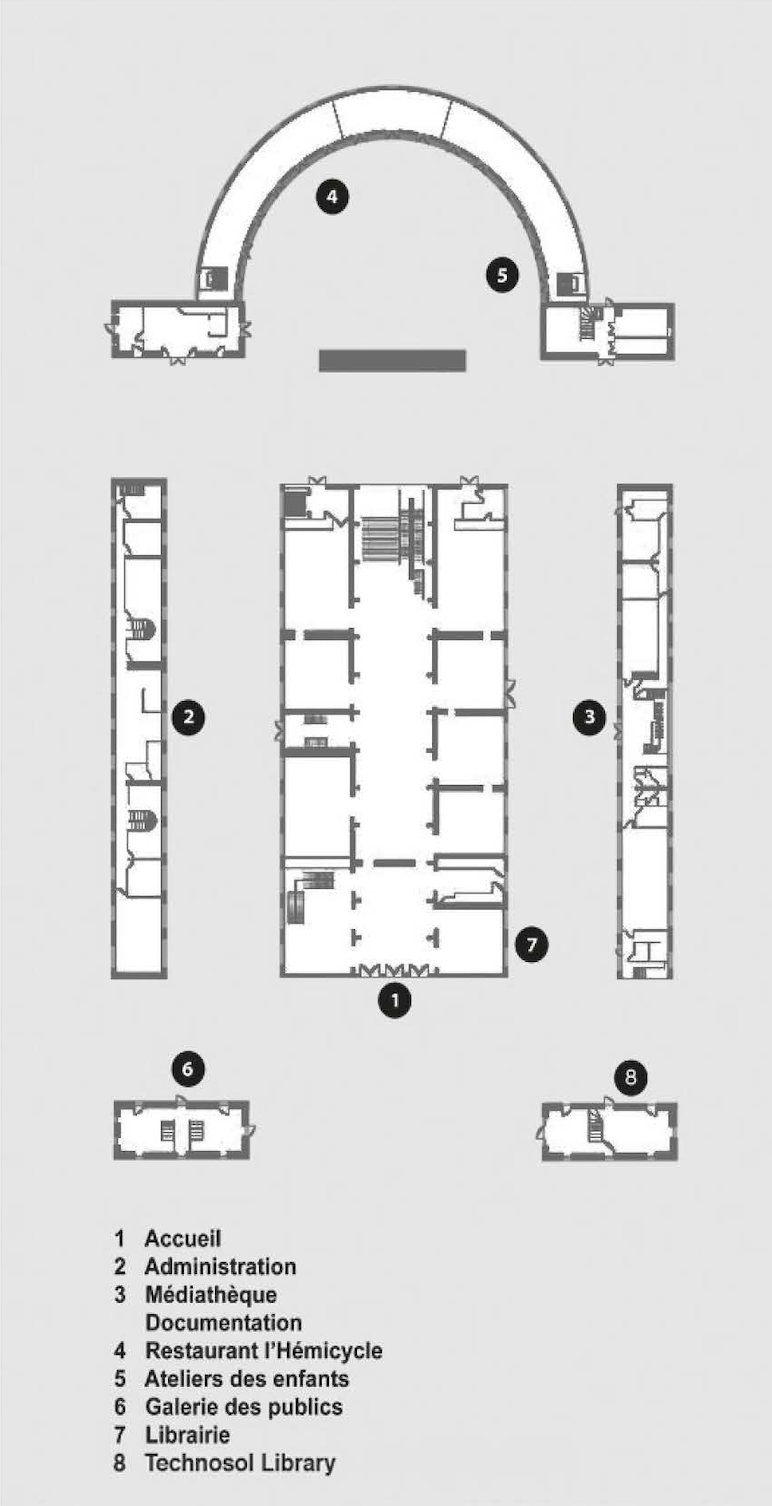

Amy Balkin
Technosol Library
Technosols are soils that are more likely to be contaminated than other soils, and whose “properties and pedogenesis are dominated by their technical origin.”
Anyone impacted by the production of technogenous soils may contribute a sample to the library.
Each soil sample will form a research volume existing across two sites:
- As housed in the library proposed for Gallery 8 (see image)
and
- In situ with the perimeter to be designated by the contributor.
The site where soil has been drawn will be inscribed with a plaque, perimeter boundary, cement cap or other appropriate marker, depending on the specific hazards of the site.
Prototype submissions might include spolic technosols from Francistown in Botswana, Al-Fe-humus soils impacted by sulphur dioxide and heavy metals from copper-nickel smelters in the Kola Subarctic, Russia, or colombite and tantalite (coltan) pegmatite-soil mixtures from Gatumba, Rwanda.
Guidelines for safe storage and handling of the volumes will be developed, owing to the hazards of shipping, handling, viewing, and storing toxic, infectious, and radioactive materials.
“Technosols comprise a new RSG and combine soils whose properties and pedogenesis are dominated by their technical origin. They contain a significant amount of artefacts (something in the soil recognizably made or extracted from the earth by humans), or are sealed by technic hard rock (material created by humans, having properties unlike natural rock). They include soils from wastes (landfills, sludge, cinders, mine spoils and ashes), pavements with their underlying unconsolidated materials, soils with geomembranes and constructed soils in human-made materials. Technosols are often referred to as urban or mine soils. They are recognized in the new Russian soil classification system as Technogenic Superficial Formations.”
Artist Bio
Amy Balkin, an American artist based in San Francisco and a Stanford University alumna, challenges conventional notions of the public domain through her interdisciplinary practice. Her work combines research and social critique to explore human interactions with social and material landscapes. Notable projects include “Invisible-5,” an audio commentary on land use along the San Francisco-Los Angeles highway corridor, investigating environmental justice issues. Balkin’s “Public Smog” challenges current laws on property ownership and pollution, aiming to expose their limitations. Additionally, her ongoing project, “A People’s Archive of Sinking and Melting,” collects items from places threatened by climate change, offering a global account of shared experiences. Through these endeavors, Balkin seeks to create a physical shared space with society while addressing pressing environmental and social concerns.
Themes: data, information, cartography
Category: Archives
